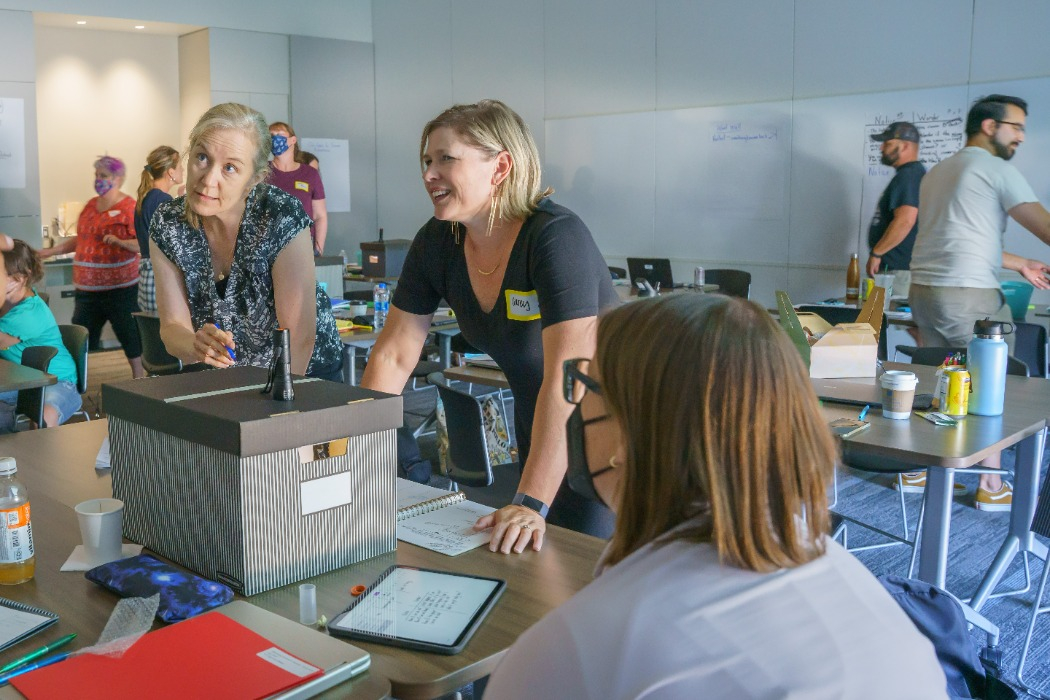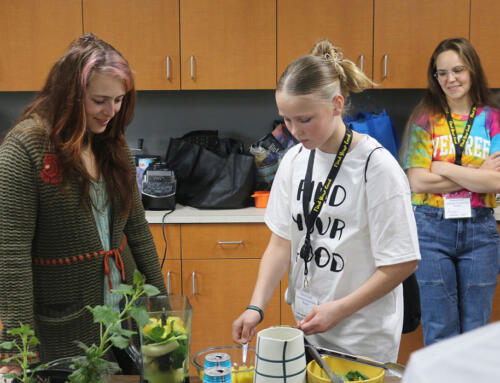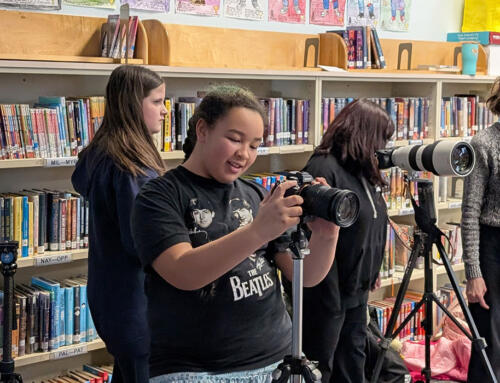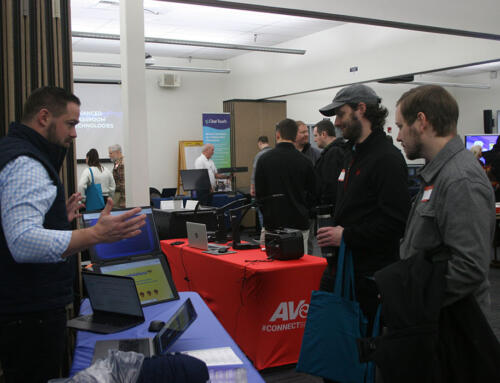In July, 65 middle school science teachers representing 42 different school districts and organizations from across Washington state gathered to attend the OpenSciEd Summer Institute, held in Vancouver, Washington. Those in attendance gathered for the in-person training to learn about OpenSciEd curriculum, with the goal of taking what they learned back to their classrooms in the upcoming school year.
One teacher who participated in the Summer Institute indicated that she learned how to “…engage students in learning and truly have a student led classroom.”
Another participant gave feedback that was echoed by a number of participants, sharing, “This is an amazing curriculum to get kids engaged in science.”
OpenSciEd is a free, customizable, research-based science curriculum focused on exploratory, hands-on learning that encourages students to engage more fully in various topics and connect scientific concepts to real-life scenarios and experiences. Designed to increase accessibility to all students and educators, OpenSciEd materials are field-tested to ensure equity, efficacy, and usability, and are designed and aligned to Next Generation Science Standards, which set the expectations for what students in grades K-12 should know and be able to do.
With more teachers accessing the curriculum, there has been a growing need for professional development. Expansion of OpenSciEd professional development is funded through an Elementary and Secondary School Emergency Relief (ESSER) Secondary Science Pathways grant administered by the Office of the Superintendent of Public Instruction (OSPI), and through a grant from Williams, a natural gas company. The Summer Institute, hosted by ESD 112, was a collaborative effort between Washington’s nine Educational Service Districts (ESDs).
“It was wonderful to bring teachers together for this event,” said Stacy Meyer, Science Coordinator at ESD 112. “For the past couple of years we have been offering OpenSciEd trainings on Zoom, but that doesn’t come close to the kinds of excitement and engagement that happens with in-person .”
The OpenSciEd Institute plans to return next summer with a focus on OpenSciEd curriculum for high school students.




